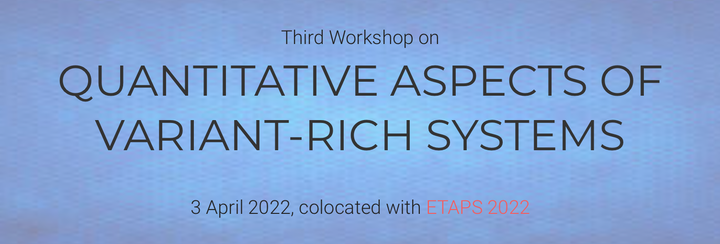QAVS 2022 @ ETAPS

Third Workshop on Quantitative Aspects of Variant-rich Systems
System variants often arise by configuring parameters that have a direct impact on the system’s behavior. Most prominently, in feature-oriented system design, features describe optional or incremental system functionalities whose configuration is simply whether a feature is active or inactive. Since the configuration space usually suffers from an exponential blowup in the number of configuration parameters, such variant-rich systems require specialized methods for their design, implementation, and analysis. Quantitative aspects such as probability of failure, energy consumption, or also numerical parameter values gain more and more attention due to the rising impact of co-adaptive and autonomous cyber-physical systems using, e.g., modern 5G technologies and robotics. While there are well-developed methodologies for variant-rich systems that do not take quantitative specifications into account, research on quantitative aspects is still done in fairly isolated branches. The main goal of this workshop is to bring researchers of the field together and foster their collaboration, presenting the different approaches to deal with non-functional properties of variant-rich systems.
The workshop comprises invited presentations, talks based on papers submitted following the call for papers, and presentation-only submissions (see submission details) related but not limited to the following topics:
[Design, Modeling, Implementation, Analysis, Verification]
of
[performance, reliability, costs, stochastic effects]
in
[feature-oriented systems, product lines, configurable systems]
Following the policy of ETAPS 2022, the workshop is planned to be an on-site event but will be streamed online and allows also for remote talks.